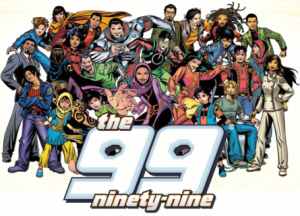
As more media scholars grapple with issues traditionally associated with aesthetic analysis, the need to map the history, methods, and goals of this “aesthetic turn” proves increasingly pressing.
Read more »

As more media scholars grapple with issues traditionally associated with aesthetic analysis, the need to map the history, methods, and goals of this “aesthetic turn” proves increasingly pressing.
Read more »

The new findings on player concussions have caused an onslaught of negative media attention for the NFL, and may soon bring the sport of professional football to a crucial crossroads.
Read more »

Comedy Central's new sketch comedy program Kroll Show offers an infinite regression of media industry meta-discourses, recreating a dominant reading position that masquerades as oppositional.
Read more »

A year of misogyny in geek culture resurrected the booth babe debate that has contributed to a backlash against female fandom.
Read more »

As audiences migrate away from live TV viewing and advertisers become increasingly concerned about how to get their messages out, series like "Escape My Life," which invite viewers to engage more directly and deeply with a brand (while being entertained!), might just be the wave of the future.
Read more »

As DirecTV, Netflix, Hulu, and Amazon emerge as players in content distribution, we are seeing evidence of active campaigning by production studios finding new homes for their canceled shows.
Read more »

PBS successfully transitions Downton Abbey from Miniseries to Drama Series by continuing to lean on the advantages afforded the former distinction.
Read more »

While other countries are considering changes to adapt their media laws for convergence, Australia has been a world leader in commissioning major studies that address these challenges head on.
Read more »
![The GSU Copyright Case: Lessons Learned [Part One]](/wp-content/uploads/2012/05/GSUPart11.jpg)
While the limited “wins” for the plaintiff have likely made future cases of this type more trouble than they are worth, the wider implications of the case are more concerning.
Read more »

This post identifies a couple of key tensions that emerge in trying to reposition Islam as a global brand through marketing Islamic superheroes The 99 as global cultural commodities.
Read more »

Do public spaces increase democratic participation through public discourse and visibility? Does a mediated non-profit ‘public forum’ help to promote the ‘promise’ of American democracy? These questions still provide grounds for healthy debate over the purpose of media studies, as well as a coherent logic for media research.
Read more »

The Media Industries Project (MIP) examines the rapid and dramatic changes affecting the media industries worldwide, focusing especially on globalization, digitization, and creative labor. As a research program of the Carsey-Wolf Center at UC Santa Barbara, we generate a range of critical analyses and innovative resources in collaboration with industry practitioners, policy experts, and...
Read more »

Recent comparisons to the early experience of using an ATM seem to offer quite a bit of potential for describing how we will be buying and watching movies and television shows in the near future.
Read more »

The licensing process for the HBO series highlights the challenge of balancing a level of control over the quality of products related to the series with efforts to both monetize and expand its audience.
Read more »

As culture becomes increasingly digitized, arguments for the “dematerialization” of media are becoming commonplace. However, media have always been, and remain, embedded in and structured by material objects, networks, and practices that delimit their uses and meanings.
Read more »